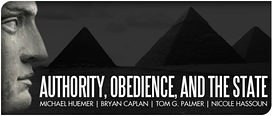First, I fully agree that we are violating the rights of poor people around the world and that we should significantly liberalize movement in labor. I endorse positive and negative rights. The claim that “Obviously, many people do not have enough to meet their needs in a world where billions are in desperate poverty and millions die every year from easily preventable poverty-related illnesses. The current distribution of property rights is not justified” in no way entails that “we currently respect everyone’s negative rights.”
Second, while I think that the current distribution of property rights globally is very unjust because it leaves people unable to meet their basic needs, I do not believe the best way of addressing the problem is through individual action. Again, my claim that “I do not have property rights that extend so far that they allow me to withhold essential goods that I do not need from those who will suffer and die without them.” Does not “imply a political obligation to … unilaterally give away most of [my] wealth to the Third World.” I believe states and international organizations can play important roles in redefining legal property rights to better protect, promote, and fulfill individuals’ moral rights. Moreover, other policies may be necessary (e.g. liberalizing movement in labor) to better protect, promote, and fulfill rights.
Third, Caplan happens to be right that I do not agree that unrestricted liberalization is always a good idea (though I did not discuss this in my post). That is because free trade, for instance, sometimes impoverishes people even if it generally helps them. I refer interested readers to my papers on the topic for further details.
Finally, a general remark: I believe it is especially important for those of us who do not endorse mainstream views to listen carefully to what others are saying. Otherwise we run the risk of giving poor arguments in response to claims that were never made and failing to contribute important perspectives to essential debates.

